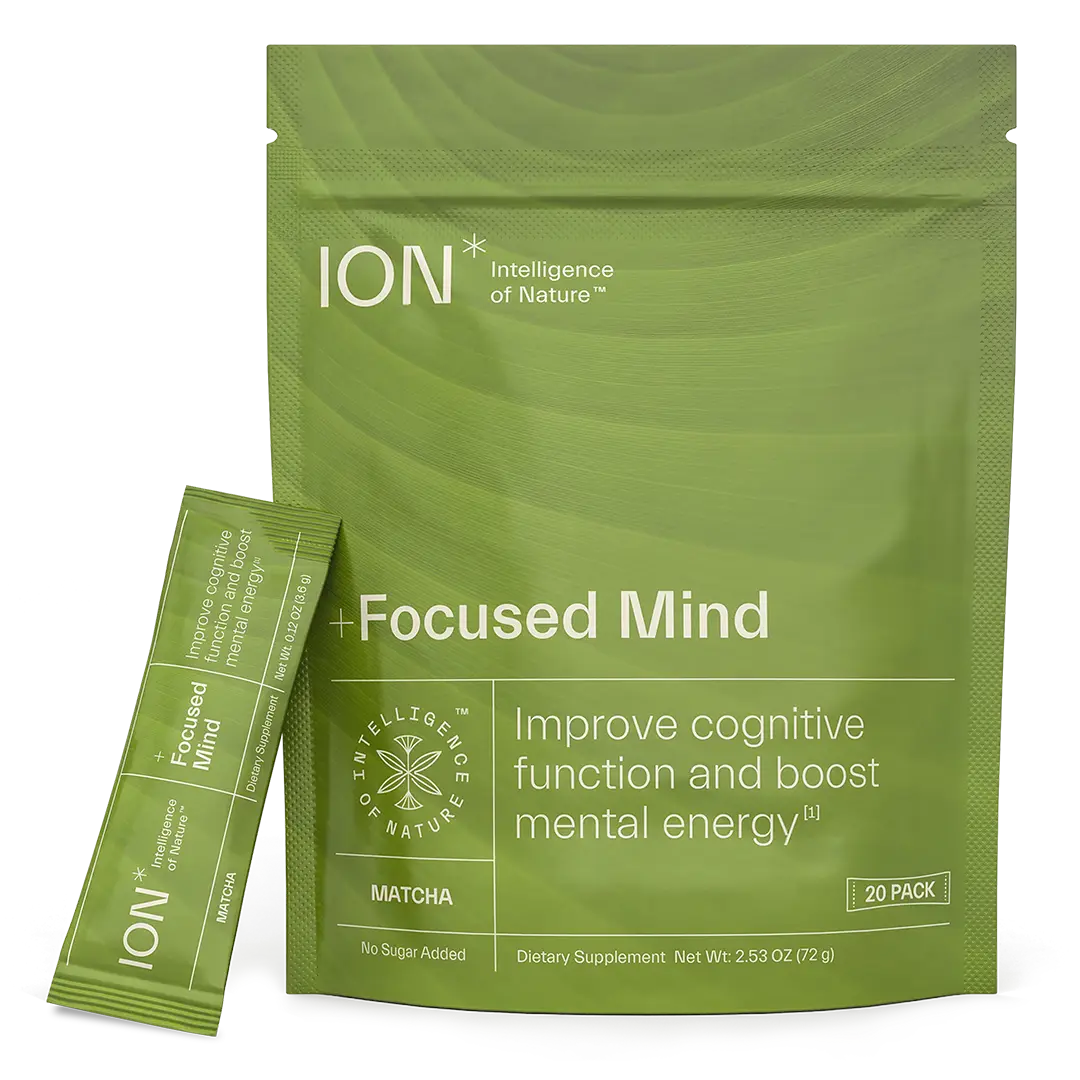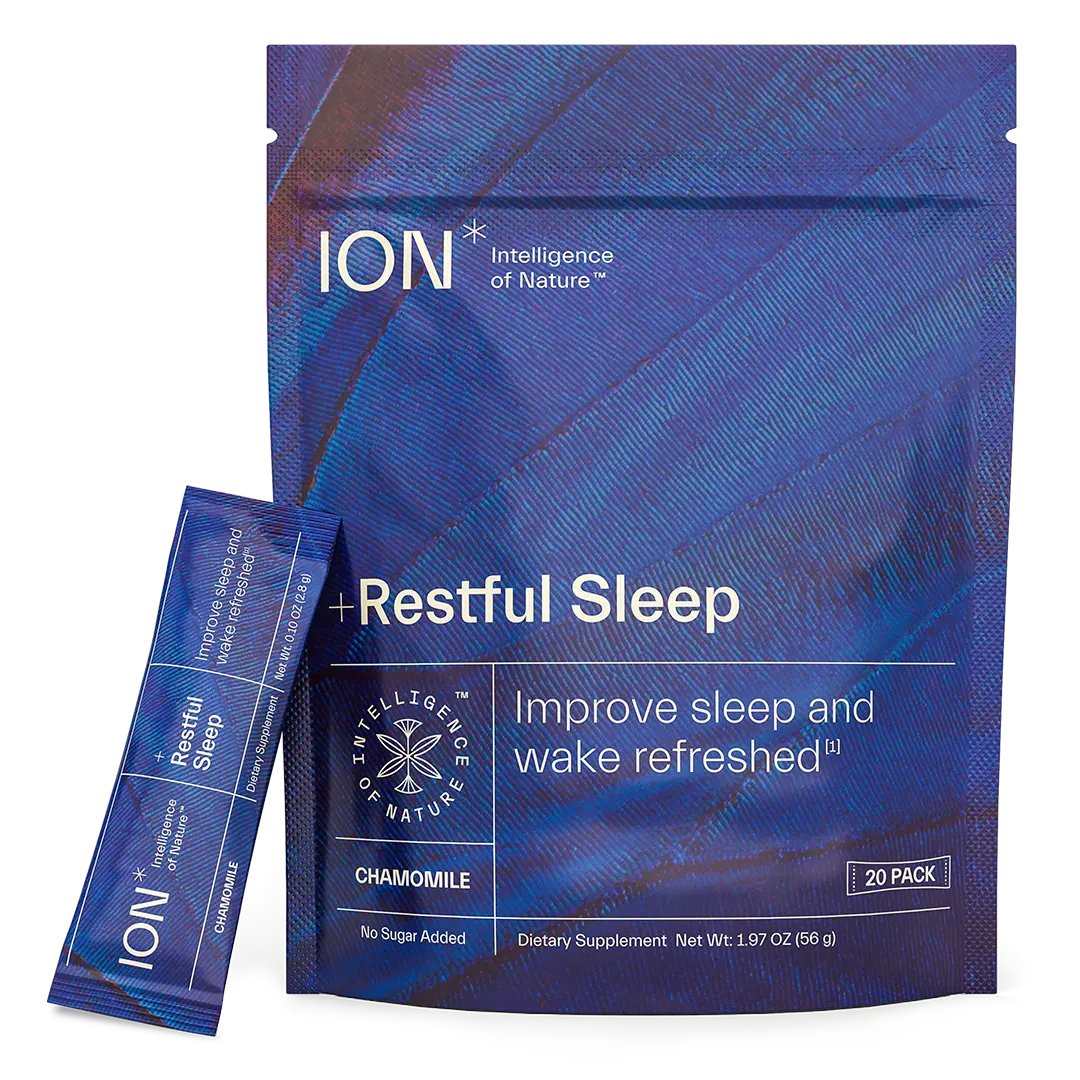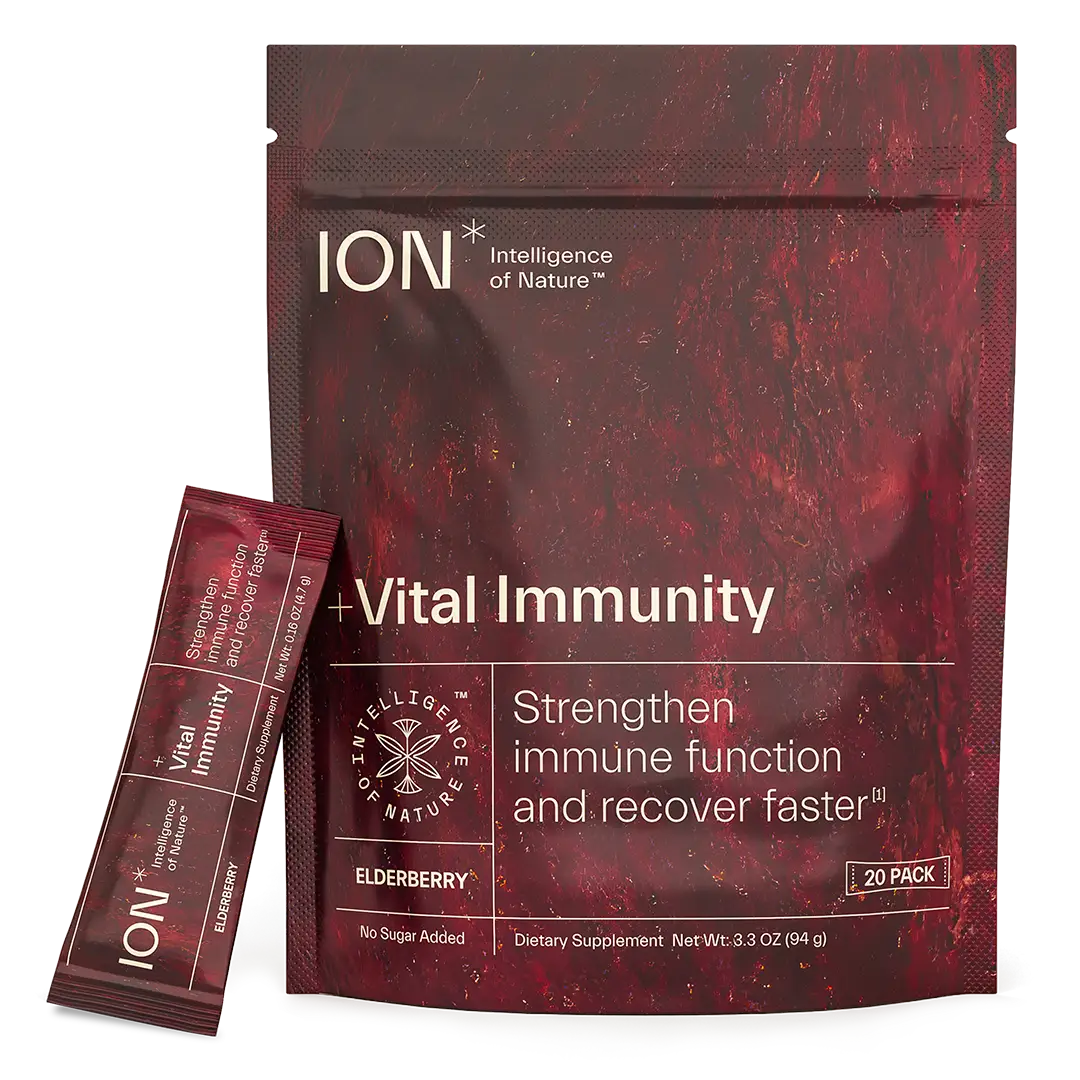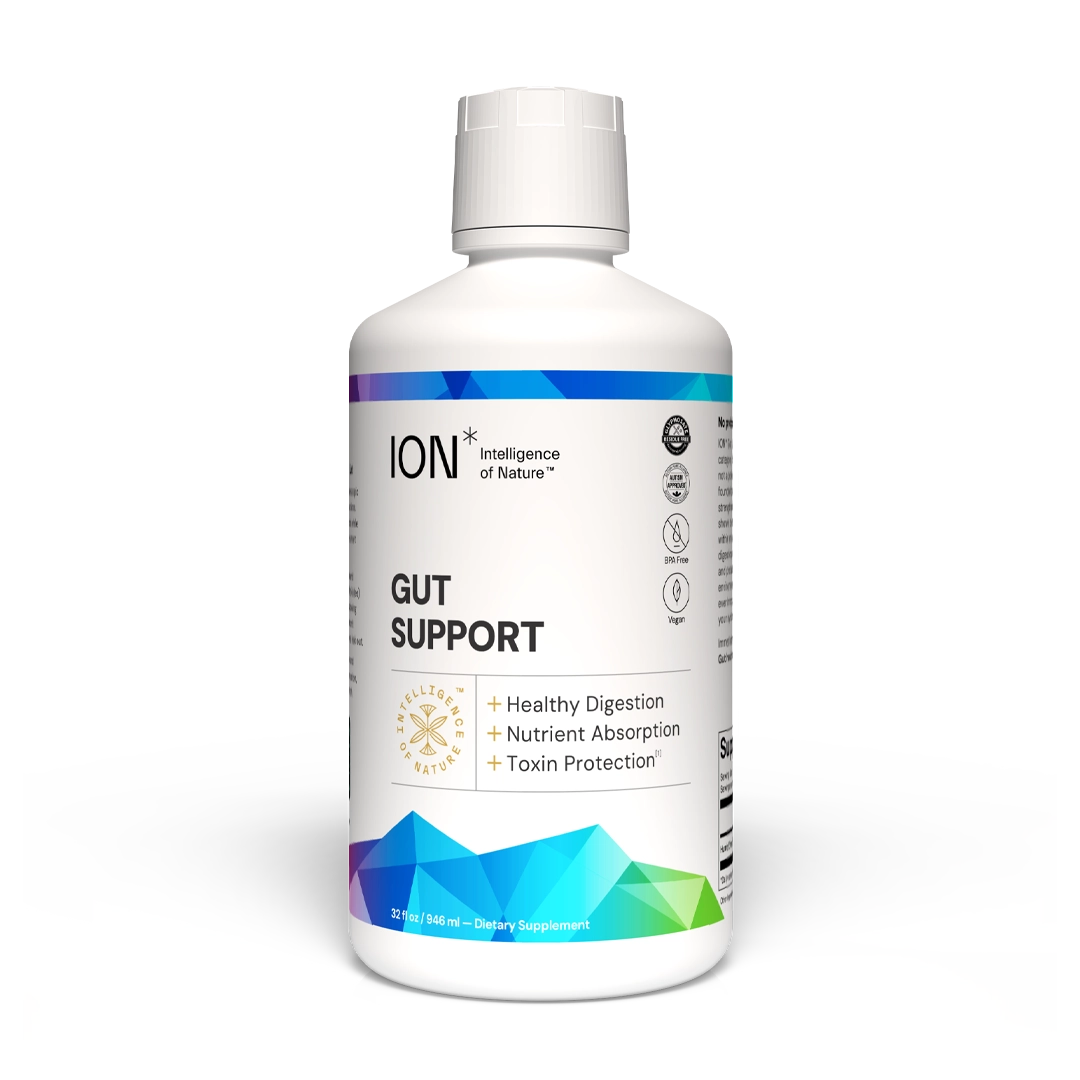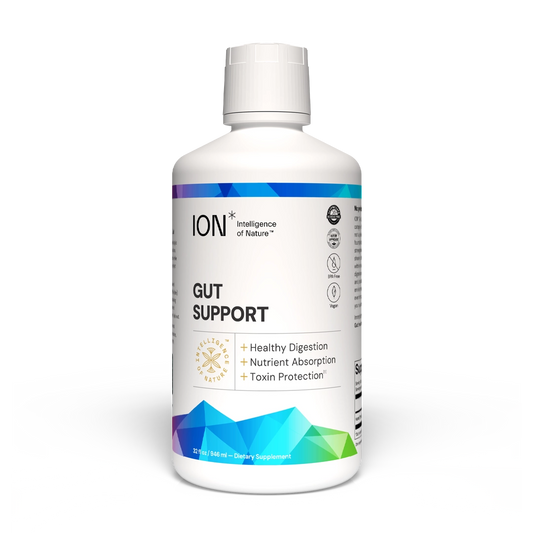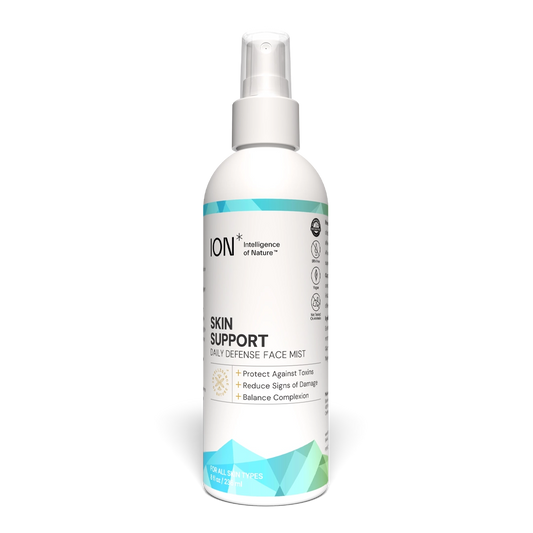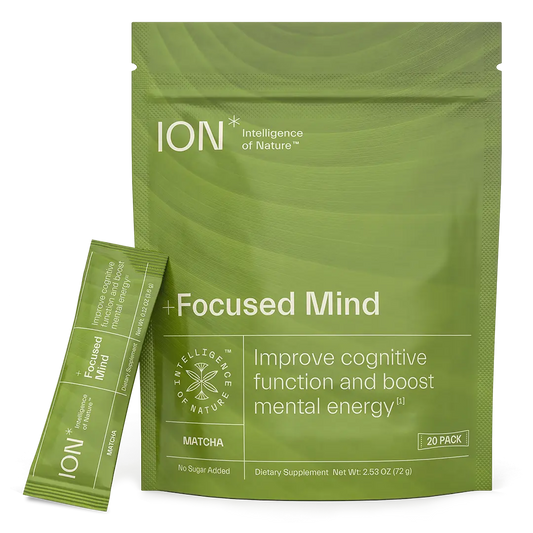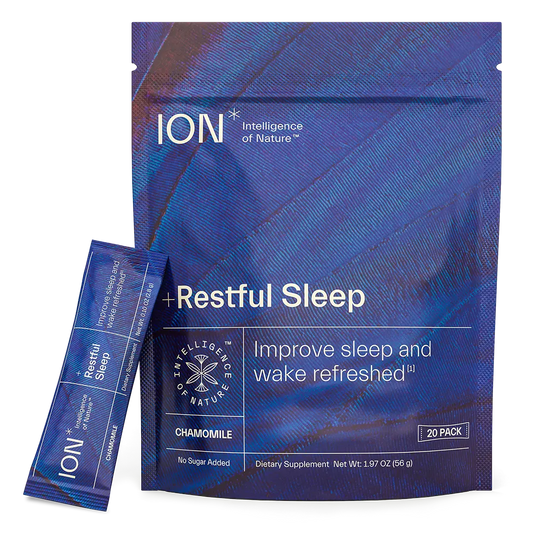Dr. John Gildea digs into the mechanisms at play behind gluten sensitivity
Strictly speaking, gluten is not a “toxin”. However, that doesn’t mean that it doesn’t have the ability to cause damage. And while it may seem strange that gluten sensitivity has been suddenly on the rise for the last few decades, there is actually a lot of science behind one of modern man’s latest dietary faux pas.
Let's dig deep with Dr. John Gildea, one of the founders of ION* Intelligence of Nature, and get A’s to some of the most pressing Q’s on gluten sensitivity, the food industry as a whole, and how to combat the sometimes deleterious effects of both.
Q: Why are so many people sensitive to gluten? Why now?
A: Well, there are several compounded effects that have been happening over time. The way that we grow, process, bake, and package bread now is completely different than it was decades ago. One of the changes that we can see, without a doubt, is that the toxic burden has increased.
An original chemical insult initiates a chain reaction. So, while many pesticides and herbicides can operate under the insistence that they don’t harm animals, chemicals in food absolutely kill good bacteria in the gut, which causes dysbiosis (microbial imbalance). And an imbalanced microbiome predisposes you to poor digestion, and loss of critical nutrient content to name a few.
Further, we can’t discount several other facets of the overarching industrialization of our food, which has fundamentally changed our relationship with food, especially when it comes to wheat.
- We no longer have a hands-on approach for making bread, meaning quantity over quality is now the priority.
- We have been breeding wheat for higher amounts of gluten (burdening our already burdened microbiome).
- We no longer use the natural fermentation process that would normally help mediate the impact that gluten has on our gut.
- We add insult to injury. After adding chemicals like glyphosate as a pre-harvest desiccant, we add even more problematic players. Look at most packaged bread labels and you’ll note sometimes over 30 ingredients, including emulsifiers, which further wreak havoc on the microbiome.
Q: So, when it comes to glyphosate in particular, what exactly is its effect on gluten?
A: First, it’s important to note that glyphosate is used as a wheat desiccant in addition to its more well-known use as an herbicide. As a desiccant, glyphosate dries the harvest quickly, creating speedier yields as well as uniform harvests.
While from a practical application, desiccation of crops might be appealing, what we see in the lab is that when in the presence of both glyphosate and gluten, there is a more severe reduction in TEER (trans epithelial electrical resistance). Lower TEER = increased permeability of the gut lining, also known as leaky gut.
Using glyphosate as a wheat desiccant also has other ramifications. Mineral sequestering is a good example of the biological impact that veering off course from nature can have on health.
Take phytate. Phytate is found in a lot of seeds, nuts, legumes and wheat. It is a mineral sequestering entity, also known as an anti-nutrient due to its ability to bind to minerals, blocking their bioavailability in the gut.
When you soak a seed in water, phytate is usually inactivated. Before the onset of desiccation, it would be several days after harvest that the wheat would moisten overnight allowing a pre germination step. However, when you harvest wheat with a desiccant, the phytate is never inactivated and thus it sequesters minerals, causing nutrient deficiencies downstream.
Learn More About the Dangers of Glyphosate in Our Food
Q: So, how exactly is the gluten/glyphosate combo causing leaky gut?
A: When we started researching gluten, we put gliadin (the protein in gluten) through a simulated digestion process (acid induced pepsin activity) and added trypsin in order to simulate what happens in the body.
When we do this, we see several peptides (amino acid chains) that make up this gliadin protein that are having a negative impact. At least two of the peptides are immunomodulatory, eliciting an immune response. Another one of the peptides is actually cytotoxic (if at high enough concentration it will kill cells). And one of the peptides, referred to as gluteomorphin, has a morphine-like activity, slowing gut motility, which is generally bad for digestion. Side note: this is also why people go crazy for bread. It’s actually addictive as that opiate feeling has real activity in the brain.
Further, when in the presence of glyphosate, we see some of these gliadin peptides causing upregulation of zonulin (a protein that can tear apart cellular seals in the gut). Usually, this zonulin-inducing peptide is intercepted by an enzyme called DPP4, that intervenes and degrades the peptide, allowing it to leave the body. However, since glyphosate upregulates free radicals and down regulates that crucial DPP4 enzyme, the peptide can miss the degradation step. Instead, it can bind to a site on the cell that initiates zonulin production, causing intestinal permeability, also known as leaky gut.
While under normal circumstances, this opening of the gut lining is necessary in order to allow immune surveillance (when there is something like bad bacteria present in the gut), consistent opening of the tight junctions in the gut lining via zonulin production is detrimental, allowing things like foreign particles and toxins to seep into the bloodstream. This flood of foreign particles causes near constant inflammation and immune response. In other words, if you want to get your immune system all riled up, this is a good way to do it.
Q: Are there other things at play that could be causing the steady rise in gluten sensitivity and leaky gut?
A: Well, if you look back at the history of not only modern farming practices, but also our pharmaceutical industry, we have been slowly moving in this direction for over a century. Starting in the late 19th/early 20th century, we see industrial farming practices really setting in with things like superphosphates (bad actor fertilizers that made it difficult for plants to take in micronutrients), specialization of farming, and mechanization.
By the 1930s, the development of antibiotics had fundamentally changed the microbiome. This would later apply to livestock as well, which utilize huge amounts of antibiotics. During the 40s and 50s, the buildup for WWII had led to learning the use of petroleum-based fertilizer (switched from compost). Further, by digging for petroleum, there was an introduction of heavy metals into food, by literally pumping oil out of ground (crust carries heavy metals).
By the 1960s, industrialization of so many things had eventually led to roughly 60,000 new chemicals, being produced in millions of tons. During the 1970s, the Food Pyramid was changed and we see fat vilified and replaced with heaps of sugar (to make food more palatable) and a march towards sugar-related diseases as well as the dreaded sugar-salt combo (hypertension and heart disease). Also during this time, things like emulsifiers and the mass production of food were coming into play.
And of course, by the 1990s, glyphosate had made its way into mainstream agricultural practices.
So, when you look back, we have significantly altered the way that we produce and consume food over the last century or so. Again, what we know, what we can actually see, is an increase in the toxic burden: antibiotics, superphosphates, petroleum-based fertilizers and heavy metals, emulsifiers and glyphosate. If we want to truly understand why leaky gut, food allergies, and gluten sensitivity have been on a steady incline, we should probably start with looking at our chemical exposure.
Q: What would you say to people suffering with Celiac Disease or gluten sensitivity?
A: Well, Celiac Disease is a lot more damaging than gluten sensitivity. I believe something like only roughly 30% of people with Celiac Disease will recover their mucosal layer in the gut lining, even after removing all gluten from the diet.
The importance of the mucosal layer cannot be overstated. It is the layer of the gut lining where a portion of your microbiome lives in the large intestine and that separates and protects the layer of cells lining the small intestine. So, after removing gluten, and avoiding toxins like glyphosate, good practice would be looking for ways to rebuild the mucus layer (aka, your microbial habitat).
Butyrate is really important here. Butyrate is a metabolite that is essential for digestive health, helping fuel intestinal function. Bacteria will produce butyrate as a byproduct of digesting prebiotic fiber. So really, the key is making sure you get plenty of prebiotic fiber. This is important for everyone, whether suffering with Celiac Disease or not. If you’re not eating enough prebiotic fiber, there are bacteria that will actually eat the mucosal layer.
And since the microbiome also produces mucous (in addition to living in the mucosal layer in the large intestine), for those suffering with CD especially, this can lead to a vicious cycle. Without enough prebiotic fiber, bacteria eat away at the mucosal layer, which can lead to an imbalanced microbiome, which then leads to even less of that essential mucous.
Good sources of prebiotic fiber include potato starch, onions, garlic, and chickpeas. Olive oil and green tea are also both great for building that mucosal layer.
Dietary Takeaways
Eat More
- If you are going to make your own bread, soak wheat berries. This step will inactivate the phytates, so they won't sequester minerals.
- Sprouted seed bread or sourdough (both great alternatives to wheat bread)
- Prebiotic foods (potato starch, garlic, onions)
- Jerusalem artichoke is one of the best prebiotic fibers. Great for the gut.
- Some key mucosal layer protectors include:
- Green tea
- Clove (active ingredient is eugenol)
- Olive oil is also “pro mucous”
Eat Less
- Meat should be reduced as it tends to slow gut motility allowing bacteria from the colon to move up into small intestines.
- Also, don’t be fooled by the idea of “whole wheat” being better. Omega-6 fatty acids in wheat germ will oxidize and go rancid so whole wheat tends to have more preservatives. It also has more lectins which can be difficult on digestion.
- Generally, anything that can sit in your pantry for more than 6 months without going bad is probably missing essential nutrients.
Q: How can ION* Gut Support help with gluten sensitivity?
A: So, when you look at the list of things in gluten that have the potential to disrupt the gut, ION* has an activity towards several of them.
For chemicals in general, ION* activates NRF2, a pathway for detoxification. This essentially can make any chemical less harmful. Concerning the immune system, there is a master regulator of inflammation referred to as NF-kappaB (NF-κB) that ION* helps to inhibit, easing chronic inflammation.
ION* is also an actual ion transfer molecule (it’s right there in the name), helping to deliver minerals efficiently to your intestinal cells. That one mechanism alone can help mitigate the human health implications of utilizing glyphosate as a pre-harvest desiccant.
Sign the petition to ban glyphosate as a pre-harvest desiccant
Honing in on the gluten degradation that was discussed previously, however, is where ION* really shines regarding gluten impact at the gut lining. The humic extract molecules that make up ION* help to activate the enzyme, DPP4, which works to remove the toxic peptides found in gluten. By sparking this initial enzyme production, ION* can maintain low levels of zonulin and combat tight junction damage. And by maintaining tight junction integrity, even in the face of glyphosate toxicity, ION* is further helping to defend against unnecessary immune response associated with gluten exposure.
Dr. John Gildea, PhD and Chief Science Advisor for ION* Intelligence of Nature, has established an extraordinary curriculum vitae and reputation through his work in both academic and private sector science positions over the last 20 years. He is an Associate Professor at the University of Virginia, and the research director at the Felder Core Laboratory. Dr. Gildea's expertise lies in genomics, kidney cell function and toxicity, hypertension, and metastatic cancer, and he has literally written the book on methodology for optimal cell culture studies.
